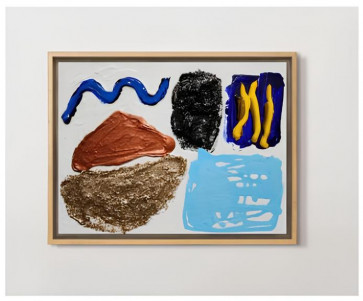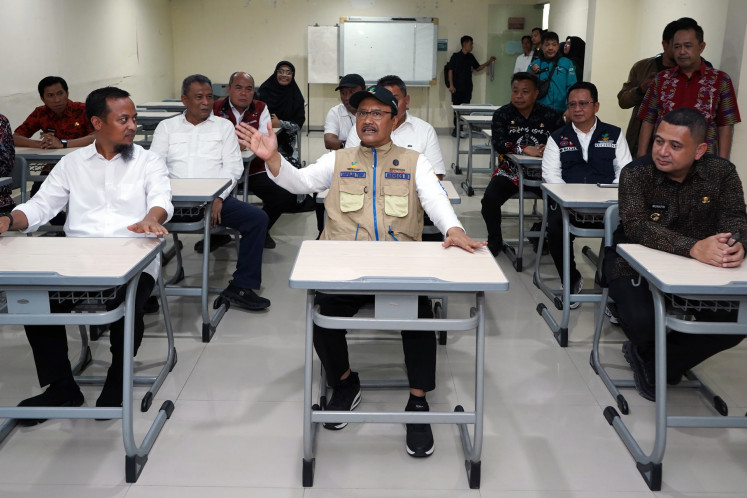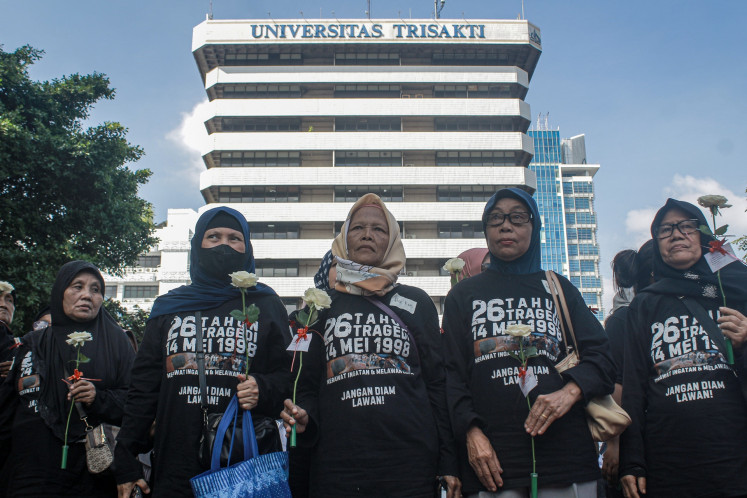Bandung Batik sees a rising popularity
Batik from the renowned batik towns of Surakarta and Pekalongan in Central Java as well as Bali and Yogyakarta have their own particular styles and features
Change text size
Gift Premium Articles
to Anyone

Batik from the renowned batik towns of Surakarta and Pekalongan in Central Java as well as Bali and Yogyakarta have their own particular styles and features.
However, few know that the West Java capital city Bandung also boasts a popular batik product known as Batik Bandung.
Many people were not aware of the prestigious Batik Bandung until they travel overseas, particularly to Japan, a country that is familiar with Batik Bandung.
Historically, there is no clear data about when Batik Bandung was born.
It was Hasanudin, a lecturer at the Bandung Technology Institute (ITB), who pioneered the batik business in Cigadung Raya Timur area, Bandung, back in 1980.
At the time, Hasan aimed to sell his batik, with an unusual batik motif, to foreign markets.
Arabic-themed batik motifs abound in Bandung Batik. (JP/Arya Dipa)
The basic shape of Hasan's batik motif consisted of small lines and dots made into geometric patterns -- larger lines, circles, curves and dots. This is believed to lead to the creation of Batik Bandung.
He was able to creatively design other products like towels featuring his batik designs.
Hasanudin passed away 14 years later.
However, Hasan's business continues to develop, said Hasan's sibling's, Tri Asayani and Rani Tria Ranitwo
The business has created various products such as pillowcases, towels, tablecloths, scarves and clothing featuring Hasan's designs.
Japan, the first country to receive Hasan's batik, called it Batik Bandung.
"Maybe in their eyes, they felt there was something different about our batik so they called it Batik Bandung," Tri Asayani said.
From then until now, the business developed fast.
At Batik Hasan's spacious studio, staff prepare batik workshops for groups and individuals, accepting orders to design special batik creations.
Hasan's studio attracts a diverse clientele, from individuals, schools and governments to companies.
Hasan's studio has evolved into a home industry that is active both in the production and selling of batik.

During the production process, they were using traditional batik design as well as cap batik (printing using a metal stamp) and a combination of both the cap printing technique and the canting (a small dipper used to apply wax).
Hasan's studio also designs batik which exploits a variety of designs, including different decorations taken from traditional Indonesian motifs like lereng (diagonal stripes) and ceplok (a large polka dot pattern).
There are also various geometric decorations like dots, squares and lines as well as a combination of a variety of traditional decorations and geometric decorations.
One of the main motifs created by Hasan's studio is batik tambal (patchwork batik) which uses different processes, including cap and canting.
In its early years, most of Hasan's clients were Japanese tourists visiting Indonesia.
With the development of Hasan's Studio, the client base has grown to include Indonesian institutions and individuals living here.
Previously, the studio exported small-sized batik products, such as furoshiki (a traditional Japanese wrapping cloth), place mats and pillowcases to Japan.
However, in early 2000, when the impact of economic crisis still gripped the country, the studio stopped exporting its product.
Currently, the Japanese market segment has slumped to little more than 25 percent.
"Japanese people have different tastes to Indonesians. They prefer the subtleties of soft motifs on products like furoshiki, place mats and pillowcases. But when it comes to clothing, they are less interested," Tri said.
For the local market, Hasan Batik produces T-shirts, blouses, sarongs and scarves, stoles and Muslim dress.
Bandung Batik seems similar to batik from other regions, but it tends to be more modern and progressive.
These days, to boost interest in batik, Hasan Batik has also open up a training facility showing off the process of batik making to boost people's interest in batik. The studio also offers public workshops and courses.









